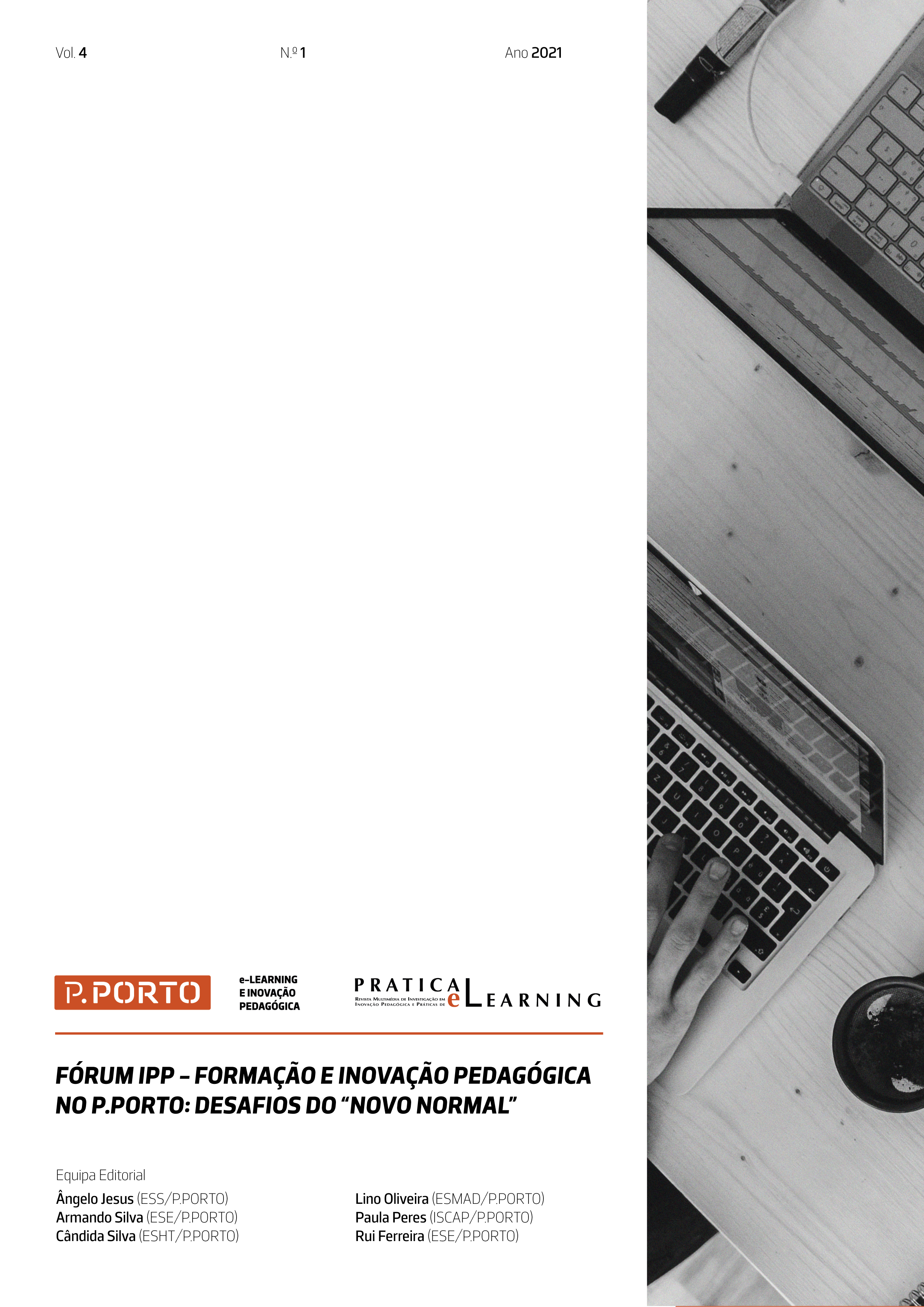Situated learning in the degree of translation and interpretation in Portuguese Sign Language
DOI:
https://doi.org/10.34630/pel.v1i4.4240Keywords:
Pedagogical Innovation, Interpretation, Portuguese Sign Laguage, Situated LearningAbstract
Through situated learning , learning is understood as a context-dependent approach, in which students are exposed to real-life work environments and tasks, both inside and outside the classroom. Under this approach, students of the Degree in Translation and Interpretation in Portuguese Sign Language (TILGP) have developed tasks in a real context. We propose to reflect on the perceptions of the experiences of 9 students in the 3rd year of the TILGP degree, from the ESE of P.PORTO, regarding the importance of innovative activities that have been carried out in different contexts (such as Porto Legends - The Underground Experience; Quinhentista Ship and Royal Customs; humorous show by Rúben Branco & guests; Master Academics project Museum Web Exhibition; Domestic Violence - Seminar), that is, feedback that they themselves give in writing. The data collected was organized into 6 themes, all of which were positively associated with the students' situated learning experience: development/enrichment, translation/interpretation skills, activity contexts, work contexts, practical teaching and future. Students recognize that this form of learning has a positive impact on different aspects of their university education, as well as contributing to future professional practice.
Downloads
Published
How to Cite
Issue
Section
License
Copyright (c) 2021 Revista Multimédia de Investigação em Inovação Pedagógica e Práticas de e-Learning

This work is licensed under a Creative Commons Attribution-NonCommercial-ShareAlike 4.0 International License.




